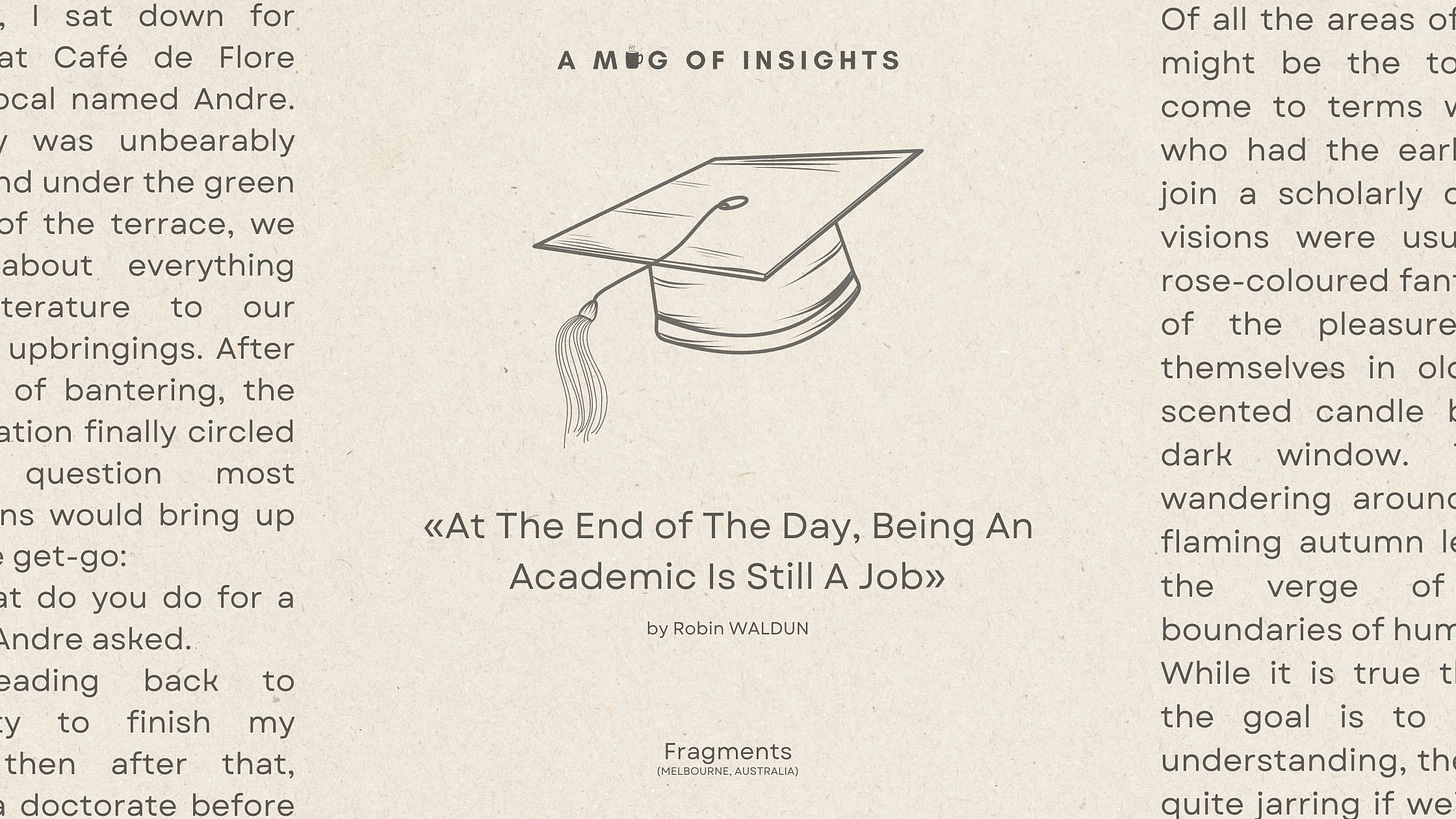At The End of The Day, Being an Academic Is Still A Job
What The Academy Won't Teach You
In Paris, I sat down for coffee at Café de Flore with a local named Andre. The day was unbearably warm, and under the green shades of the terrace, we talked about everything from literature to our peculiar upbringings. After an hour of bantering, the conversation finally circled to a question most Americans would bring up from the get-go:
“So, what do y…
Keep reading with a 7-day free trial
Subscribe to A Mug of Insights to keep reading this post and get 7 days of free access to the full post archives.



